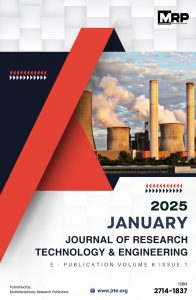Downloads
Natural Passive systems to enhance the comfort of buildings
Mainly this research paper investigates passive systems used for buildings. Heating, ventilation, and air conditioning were the major energy consumers in the building industry globally. Due to its proximity to the equator, Sri Lanka has high average temperatures. Therefore, suitable ventilation and daylighting systems must be considered while designing a building or any other type …
Natural Passive systems to enhance the comfort of buildingsRead More
Bioplastics for sustainable future
Bioplastics are a type of material that can decompose or come from renewable sources, such as plant starch and Cellulose. These materials show great potential as an eco-friendly alternative to regular plastics because they assist in minimizing the adverse effects that plastic manufacture, use, and disposal have on the environment. Furthermore, bioplastics may significantly reduce …
Potential Renewable Energy Sources in Sri Lanka
The primary energy source of Sri Lanka is fossil fuels such as diesel and coal. Sri Lanka used 12.8 million tons of oil equivalent energy in 2020, consisting of 43% of crude oil and finished products, 37% of biomass, 11% of coal, 6% of hydro and 3% of other renewable energy. In the future goal …
OVERVIEW OF SOLAR ELECTRICITY IN SRI LANKA AND RECYCLING PROCESSES
Solar energy is a clean, renewable source with no emissions and low recurring costs. In recent years the technology of solar energy and its usage has experienced unprecedented change and rapid growth. Promotional and encouraging government policies about solar energy, technological improvements in less setup and maintenance cost, growing public awareness of environmental issues easy …
OVERVIEW OF SOLAR ELECTRICITY IN SRI LANKA AND RECYCLING PROCESSESRead More
Solid waste management and minimization approaches in Faculty of Technology-University of Sri Jayewardenepura – Sri Lanka
As environmental issues become more pressing, waste minimization and utilization have become crucial concerns for society. Waste minimization seeks to decrease the amount of waste generated, while waste utilization involves repurposing waste for practical uses. This article thoroughly examines waste minimization strategies and waste utilization technologies, including recycling, composting, and energy recovery. Additionally, it highlights …
ISSN
2714-1837
| M | T | W | T | F | S | S |
|---|---|---|---|---|---|---|
| 1 | 2 | |||||
| 3 | 4 | 5 | 6 | 7 | 8 | 9 |
| 10 | 11 | 12 | 13 | 14 | 15 | 16 |
| 17 | 18 | 19 | 20 | 21 | 22 | 23 |
| 24 | 25 | 26 | 27 | 28 | 29 | 30 |
Our Visitors






 Users Today : 24
Users Today : 24 Total Users : 28439
Total Users : 28439 Views Today : 49
Views Today : 49 Total views : 80882
Total views : 80882 Who's Online : 0
Who's Online : 0 Your IP Address : 3.138.106.12
Your IP Address : 3.138.106.12

